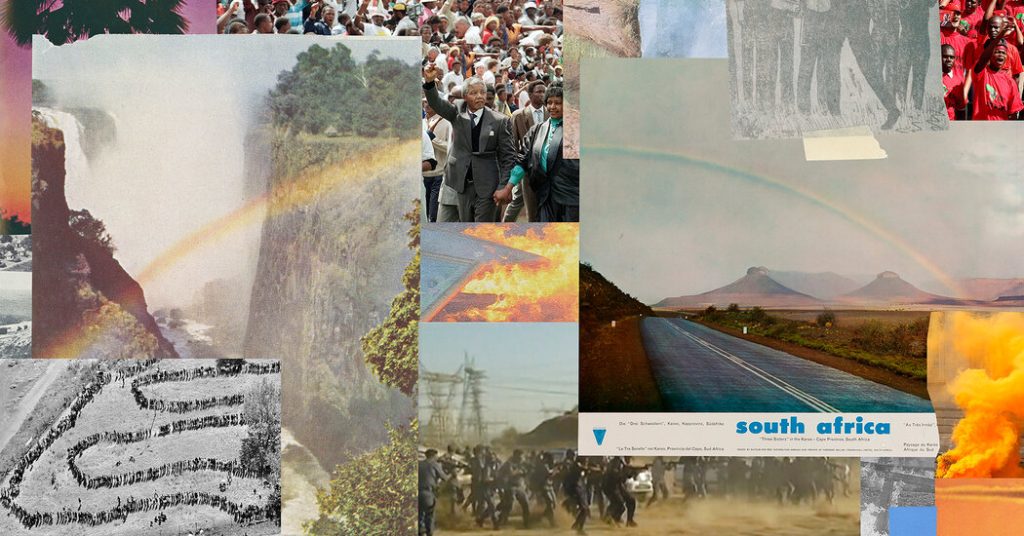The article discusses the current state of politics in South Africa, focusing on President Cyril Ramaphosa’s lackluster speech commemorating the end of white-minority rule in the country. The African National Congress (A.N.C.), which has been dominant since the country’s first democratic vote in 1994, may lose its parliamentary majority for the first time in the upcoming general elections. The emergence of uMkhonto weSizwe, or M.K., led by former president Jacob Zuma, poses a significant threat to the A.N.C.’s position. South Africa is facing challenges such as collapsing infrastructure, corruption, waning central authority, and violent crime, indicating a period of complex transformation.
The article chronicles the decline of the A.N.C. and South Africa’s post-apartheid trajectory, citing a turning point in 2009 when Jacob Zuma became president. Subsequent events, such as the Marikana massacre in 2012 and the formation of the Economic Freedom Fighters, have challenged the country’s founding myth of a nonracial, cooperative democracy. The A.N.C.’s loss of support has not yet been filled by any other political force, with opposition parties like the Economic Freedom Fighters and the Democratic Alliance presenting different challenges to the A.N.C.’s dominance. The country seems to be grappling with questions of identity and governance as it enters a new phase of uncertainty.
Political life in South Africa has shifted towards identity politics, with the national question dominating the political spectrum. Parties on the right promote chauvinist ideologies and anti-migrant policies, appealing to colored voters through colored nationalism. The country’s cleavages appear insurmountable as revanchism reshapes the political terrain, leading to a growing sense of division and disengagement among the populace. Despite the historical narrative of a multiracial, multiethnic movement against apartheid, many South Africans have become resigned to the government’s failure to improve their lives, leading to declining participation in civic and political activities.
Global discontent with liberal democracy has also affected South Africa, with a sense of resignation pervading public sentiment. From a high voter turnout in the 1994 elections, the country has seen a significant drop in turnout by the 2019 elections, with over two million A.N.C. voters lost. The article reflects on the changing national story and the country’s reinvention, likening it to the fictional character of Tintswalo coming of age and being on the verge of something different. As South Africa evolves and navigates its current challenges, the future remains uncertain, with questions looming about which direction the country will take moving forward.


